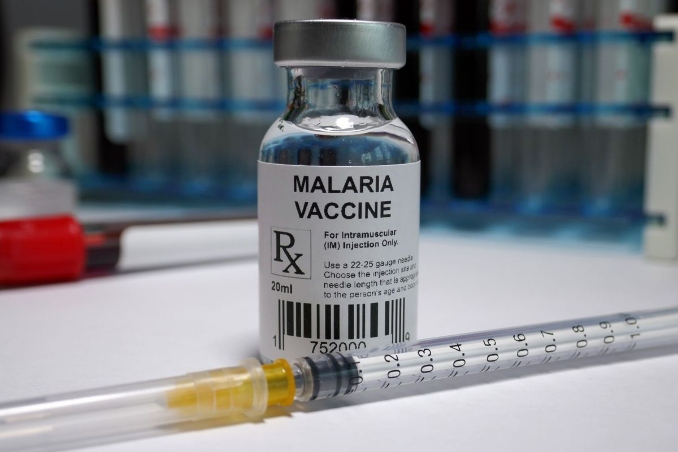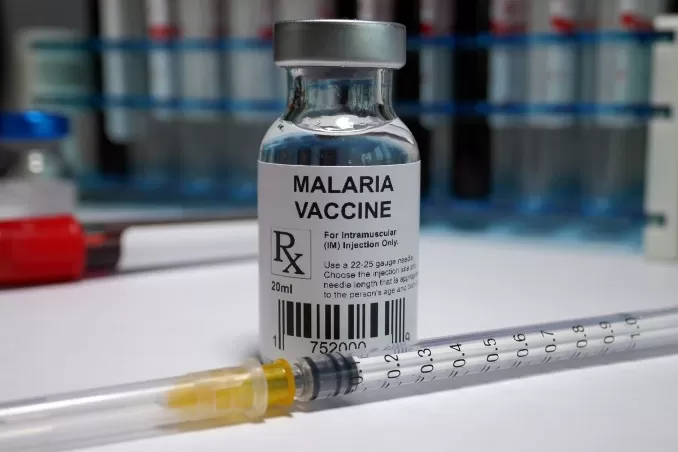

malaria trial of drugs and vaccine
Last updated on September 11th, 2021 at 07:55 am
A malaria trial was conducted in two African countries of Mali and Burkina Faso that included combining malaria prevention drugs and vaccinations. The trial has yielded striking results with 70% reduction in severe illness among children.
The results of the study have been published in the New England Journal of Medicine and lauded as “very striking”. This is especially significant as it has been decades that malaria is being tackled in many countries with slow progress towards eradication.
The trial, which was led by the London School of Hygiene & Tropical Medicine (LSHTM), shows a 70% reduction in hospitalization or death among young children due to malaria. This is when the children were given both anti-malarial drugs and seasonal vaccinations as compared to just one mode of intervention.
According to the trial, it is believed that 400,000 deaths in children can be avoided every year due to mosquito-borne disease. Africa, unfortunately, bears the brunt of a maximum caseload of global cases of malaria. In 2019, over 90% of globally estimated 230 million cases of malaria were in Africa. Many African countries, including Eritrea and Sudan, have witnessed the reappearance of malaria cases.
The LSHTM research included the study of over 6000 children between five and 17 months over a period of over three years in Mali and Burkina Faso. They were administered with the world’s first malaria vaccine, RTS, S and four courses of anti-malarial drugs sulfadoxine-pyrimethamine and amodiaquine, known as seasonal malaria chemoprevention (SMC). The combination was given during the rainy season which is a time of high transmission.
“The results of the trial were much more successful than we had anticipated,” said the study’s co-lead author Daniel Chandramohan from LSHTM.
“Our work has shown a combination approach using a malaria vaccine seasonally – similar to how countries use influenza vaccine – has the potential to save millions of young lives in the African Sahel. Importantly, we didn’t observe any new concerning pattern of side-effects.”
Trial results showed that hospitalization and death among the children who received a combination of the RTS,S vaccine and SMC reduced by 70.5% and 72.9% respectively, compared with when they were given SMC alone.
Pedro Alonso, director of the World Health Organization malaria program said, “RTS,S is the first malaria vaccine that has already reached more than 740,000 children through routine childhood vaccination in Ghana, Kenya, and Malawi in a landmark pilot implementation, through which more than 2.1m malaria vaccine doses have been delivered.
The level of vaccine uptake by families over a relatively short period shows strong community demand for the vaccine and the capacity of childhood vaccination programs to deliver it.”
The incessant rains have caused flooding in Durban and its neighboring areas. It has disrupted several core areas, with a…
Cross-border activity suffered vast disruption when the new ban started at midnight Thursday with its direct impact on border checkpoints…
South African Bank fined R700,000 after determining the institution misrepresented a credit product as an investment opportunity. Following its December…
EA Sports shows that Toronto Maple Leafs will stop their 58-year title wait by beating the Colorado Avalanche in seven…
Pope Francis, the first Latin American pope of the Roman Catholic Church, passed away in the morning of his 88th…
You want to pick a good film for weekend relaxation? Netflix South Africa provides customers with a wide range of…
This website uses cookies.